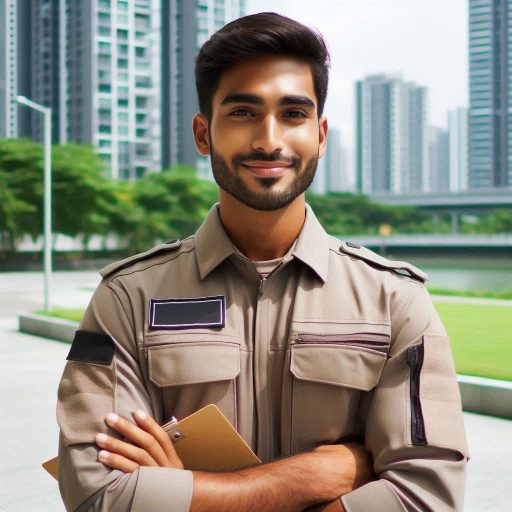Introduction
The role of lifeguards is vital in maintaining safety at pools, beaches, and other aquatic environments.
Lifeguard interviews play a crucial role in selecting qualified candidates for this important job.
Common Interview Questions and Answers
Can you swim well and are you certified in lifeguarding?
Yes, I am a strong swimmer and hold current lifeguard certification.
How would you handle a distressed swimmer in the water?
I would approach calmly, reassure them, and tow them back to safety using rescue techniques.
Describe a time when you had to enforce pool rules?
During swim practice, I reminded swimmers not to run on the deck and explained the importance of safety.
How do you stay focused and alert during your shift?
I take regular breaks, stay hydrated, and practice scanning the water and surroundings consistently.
Have you ever performed a rescue? If so, can you walk us through it?
Yes, I once rescued a swimmer who was struggling in deep water by swimming out to them, securing them, and safely returning to shore.
How do you handle conflicts with other staff members or patrons?
I address concerns directly, listen to all parties involved, and work towards finding a resolution that benefits everyone.
Are you trained in first aid and CPR?
Yes, I am certified in both first aid and CPR to ensure quick and effective response in emergencies.
How do you stay updated on lifeguarding best practices and techniques?
I regularly attend training sessions, read industry publications, and seek feedback from experienced peers to stay current.
Preparing for lifeguard interviews by understanding common questions and practicing thoughtful answers is essential for aspiring lifeguards to demonstrate their qualifications and commitment to ensuring safety in aquatic environments.
What experience do you have in lifeguarding?
Common question asked to assess the candidate’s background in lifeguarding
Interviewers often ask about your lifeguarding experience to gauge your background and skill level.
Transform Your Career Today
Unlock a personalized career strategy that drives real results. Get tailored advice and a roadmap designed just for you.
Start NowThey want to ensure you have the necessary experience to handle the job’s responsibilities.
Be prepared to discuss your previous lifeguarding roles and highlight your specific duties.
Mention the types of environments where you’ve worked, such as pools, beaches, or water parks.
This shows your adaptability to different settings.
When answering this question, focus on any certifications you hold, such as CPR, first aid, or lifeguard training from recognized organizations like the Red Cross.
These qualifications demonstrate your readiness and commitment to maintaining safety standards.
If you’ve completed recent training, emphasize how you’ve kept your skills up-to-date.
Tips on how to highlight relevant experience
Don’t hesitate to include any relevant volunteer work.
For example, if you’ve supervised water activities at community events or camps, mention those experiences.
Even if you haven’t had an official lifeguard job, transferable skills from other safety-related positions or sports can also be useful.
You should also discuss the challenges you’ve encountered in your previous roles.
Whether it was managing a crowded pool or performing a rescue, these experiences prove your ability to handle difficult situations.
Interviewers want to know how you’ve applied your skills under pressure.
Conclude by explaining how your background has prepared you for the position you’re applying for.
By showcasing your certifications, past jobs, and volunteer work, you can demonstrate your readiness to take on lifeguarding responsibilities.
Read: Lifeguard Certification Renewal: What to Know
How would you handle a water emergency?
Common scenario-based question to evaluate candidate’s response in critical situations
Interviewers often ask lifeguard candidates how they would handle a water emergency.
This scenario-based question helps assess your ability to stay calm and act swiftly during critical situations.
To impress the interviewer, you must provide a detailed and confident answer.
Outline specific steps to show you understand the gravity of the situation and are ready to respond effectively.
Transform Your Career Today
Unlock a personalized career strategy that drives real results. Get tailored advice and a roadmap designed just for you.
Start NowWays to provide a detailed and confident answer
Begin by describing how you would first assess the scene.
Explain that you would quickly scan the water to confirm the emergency and ensure it’s safe to approach.
Mention how you would prioritize the safety of bystanders before diving into the rescue.
This shows that you consider the entire environment, not just the victim.
Next, describe the rescue techniques you would use.
If the person is conscious, explain how you would approach them without startling them.
Mention techniques like the reach, throw, or row method.
If unconscious, describe how you would perform a swift yet safe rescue while avoiding unnecessary risks to yourself.
Include communication protocols in your response.
Explain how you would immediately alert other lifeguards or bystanders by signaling for help.
Once the victim is safely out of the water, detail how you would provide first aid or CPR if necessary.
Stress the importance of staying calm and clear when communicating with team members.
Conclude by emphasizing that handling emergencies requires both technical skills and clear-headed decision-making.
By outlining specific actions and safety protocols, you demonstrate confidence and preparedness, qualities that interviewers seek in a lifeguard.
Read: Recreation Worker Work Environment Overview
How do you stay updated on lifeguarding techniques and skills?
Lifeguarding requires constant learning and practice.
During interviews, expect questions about your commitment to ongoing education.
Interviewers want to know how you stay informed about lifeguarding techniques and skills.
Question focused on candidate’s commitment to ongoing education and training in lifeguarding
When answering, emphasize your dedication to professional development.
You can mention your participation in workshops and conferences.
Transform Your Career Today
Unlock a personalized career strategy that drives real results. Get tailored advice and a roadmap designed just for you.
Start NowThese events help you learn the latest techniques from experts.
Attending these programs shows your eagerness to improve your skills.
Regular practice sessions are also vital. You can describe how you engage in drills with your team.
These sessions enhance your ability to respond effectively in emergencies.
They also keep your skills sharp and up to date.
Additionally, discuss any certifications you pursue.
Lifeguarding often requires certifications like CPR and First Aid.
Highlight how you renew these certifications regularly to maintain your knowledge.
Suggestions on mentioning attendance at workshops, conferences, and regular practice sessions in response
You might also mention online resources.
Websites and forums offer valuable information on lifeguarding best practices.
Following industry leaders on social media can also keep you informed.
These resources help you learn from others’ experiences and insights.
Finally, consider discussing your commitment to sharing knowledge.
Teaching younger lifeguards or peers demonstrates your dedication to the profession.
Mentoring others can reinforce your own skills while helping your team grow.
In review, focus on your commitment to ongoing education during the interview.
Discuss your participation in workshops, practice sessions, and online resources.
Demonstrating your dedication to staying updated will impress interviewers and showcase your passion for lifeguarding.
Read: Lifeguard Rescue Techniques: Essential Skills

Can you describe a time when you had to enforce pool rules?
When answering the question about enforcing pool rules during a lifeguard interview, it is essential to provide a detailed and specific example to demonstrate your experience and skills in handling conflicts and maintaining order.
Transform Your Career Today
Unlock a personalized career strategy that drives real results. Get tailored advice and a roadmap designed just for you.
Start NowSpecific Incident
Begin by describing a particular situation where you had to enforce pool rules.
Provide context for the incident, such as the time, location, and specific rules that were being violated.
This helps the interviewer understand the circumstances you were dealing with.
Highlight Communication Skills
Emphasize how you communicated the rules to the individuals involved in a calm and professional manner.
Describe the steps you took to address the situation, such as reminding swimmers of the rules or asking them to leave the pool area if necessary.
Adherence to Rules and Regulations
Explain how you ensured that the pool rules were being followed consistently and fairly.
If you had to escalate the situation to a higher authority, discuss how you handled the transition and maintained a sense of order throughout the process.
- Provide a specific example of a time when you had to enforce pool rules.
- Describe the incident in detail, including the rules being violated.
- Highlight your communication skills in addressing the situation professionally.
- Emphasize your ability to maintain order and adhere to rules and regulations.
By following these tips and providing a well-structured response, you can demonstrate your ability to handle conflicts effectively as a lifeguard.
Read: Educational Requirements for Recreation Workers
What would you do if you noticed a swimmer struggling in the water?
When interviewing potential lifeguards, this question is crucial as it assesses their ability to recognize and respond to emergencies quickly and effectively.
Here are some common answers you might expect from candidates:
Immediate Action
- Signal for backup: A candidate who understands the importance of teamwork and quick response will likely mention alerting other lifeguards or staff immediately.
- Assess the situation: Look for responses that include scanning the area to identify potential hazards and determining the best approach to the rescue.
- Enter the water: Candidates should mention their willingness to enter the water to assist the struggling swimmer, following proper safety protocols.
- Communicate with the swimmer: Effective communication skills are essential in calming the swimmer down and gaining their cooperation during the rescue.
Alerting Other Lifeguards
- Call for backup: Mentioning the importance of calling for additional lifeguards or staff demonstrates an understanding of the need for a coordinated rescue effort.
- Assign roles: Candidates who mention delegating tasks to other lifeguards show leadership skills and an ability to manage emergency situations effectively.
- Organize the rescue: Look for responses that include coordinating efforts with other lifeguards to ensure a smooth and efficient rescue operation.
- Update on the situation: Communication is key, and candidates should mention the importance of providing regular updates to ensure everyone is on the same page.
Following Proper Procedures
- Stay calm and focused: Demonstrating composure under pressure is vital in emergency situations and following established protocols.
- Implement rescue techniques: Candidates who mention specific rescue techniques such as reaching assists or using rescue tubes show preparedness and training.
- Minimize risks: Candidates should prioritize the safety of both the swimmer and themselves by following proper rescue procedures and protocols.
- Provide post-rescue care: Look for candidates who mention the importance of assessing the swimmer’s condition and providing necessary first aid or medical assistance.
By asking candidates how they would respond to a swimmer struggling in the water, you can evaluate their ability to handle emergencies effectively, work as part of a team, and prioritize safety at all times.
How do you prioritize safety while maintaining a positive environment for pool guests?
When interviewing potential lifeguards, it is essential to assess their ability to balance safety measures with providing excellent customer service.
Here are some recommendations on how to approach this question and what to look for in their answers:
Emphasize Clear Communication
One of the key elements in prioritizing safety while maintaining a positive environment is clear communication.
Lifeguards must be able to effectively communicate rules, warnings, and emergency procedures to pool guests.
Ask the candidate how they would communicate safety protocols to visitors in a clear and concise manner.
Highlight Proactive Prevention
Another crucial aspect of maintaining safety at the pool is proactive prevention.
Lifeguards should constantly scan the pool area, identify potential hazards, and take action to prevent accidents before they happen.
Inquire about the candidate’s approach to proactive prevention and how they would handle a situation where they foresee a potential risk.
Transform Your Career Today
Unlock a personalized career strategy that drives real results. Get tailored advice and a roadmap designed just for you.
Start NowStress Professional Demeanor
In addition to clear communication and proactive prevention, lifeguards should maintain a professional demeanor at all times.
This includes staying calm under pressure, being attentive to guests’ needs, and handling conflicts or emergencies with professionalism.
Ask the candidate how they would handle a challenging situation while remaining composed and professional.
Evaluate Conflict Resolution Skills
Conflicts may arise between pool guests, and lifeguards must be able to resolve them effectively while maintaining a positive atmosphere.
Inquire about the candidate’s experience with conflict resolution and how they would handle a disagreement between guests at the pool.
Look for responses that demonstrate empathy, problem-solving skills, and a focus on de-escalating tense situations.
Assess Teamwork Abilities
Working as a lifeguard often involves collaborating with other team members to ensure the safety and well-being of pool guests.
Ask the candidate about their experience working in a team environment and how they would contribute to a cohesive lifeguard team.
Look for responses that emphasize communication, cooperation, and a willingness to support their colleagues.
Consider Adaptability and Quick Thinking
Safety situations can escalate rapidly at the pool, requiring lifeguards to think on their feet and adapt to changing circumstances.
Ask the candidate about a time when they had to think quickly in a challenging situation and how they handled it.
Look for responses that showcase quick decision-making, problem-solving skills, and the ability to remain calm under pressure.
By asking these questions and evaluating the candidate’s responses, you can gain a better understanding of their ability to prioritize safety while maintaining a positive environment for pool guests.
Look for lifeguards who demonstrate a commitment to clear communication, proactive prevention, professional demeanor, conflict resolution skills, teamwork abilities, and adaptability in challenging situations.
Hiring lifeguards with these qualities will help ensure a safe and enjoyable experience for all pool guests.
Conclusion
Lifeguard interviews play a crucial role in hiring qualified candidates.
The interview process helps employers assess applicants’ skills and suitability for the position.
Candidates should prepare for common questions like “What would you do in an emergency?” and “How do you handle difficult patrons?”
Providing strong answers to these questions showcases a candidate’s knowledge and confidence.
Emphasizing training, previous experiences, and problem-solving skills can help candidates stand out.
Transform Your Career Today
Unlock a personalized career strategy that drives real results. Get tailored advice and a roadmap designed just for you.
Start NowAdditionally, showing a commitment to safety and teamwork reflects positively on potential hires.
A successful lifeguard must communicate effectively and remain calm under pressure.
Interviewers often seek candidates who demonstrate these qualities during discussions.
Applicants should practice responses to demonstrate their ability to think critically in emergency situations.
Ultimately, lifeguard interviews ensure that only the most qualified individuals are selected.
This process is vital for maintaining a safe and enjoyable aquatic environment for all.
When lifeguards are well-trained and prepared, they can effectively prevent accidents and respond to emergencies.
By understanding the key points discussed in this blog post, candidates can better prepare for their interviews.
Remember, the goal is to highlight your strengths and passion for ensuring safety.
Use these insights to approach your interview with confidence and clarity.




